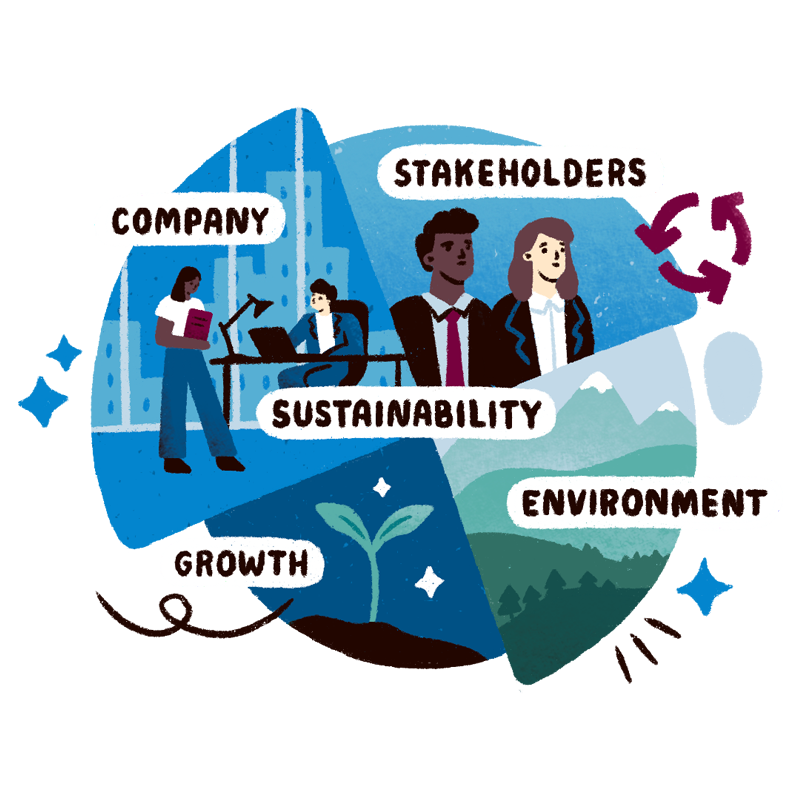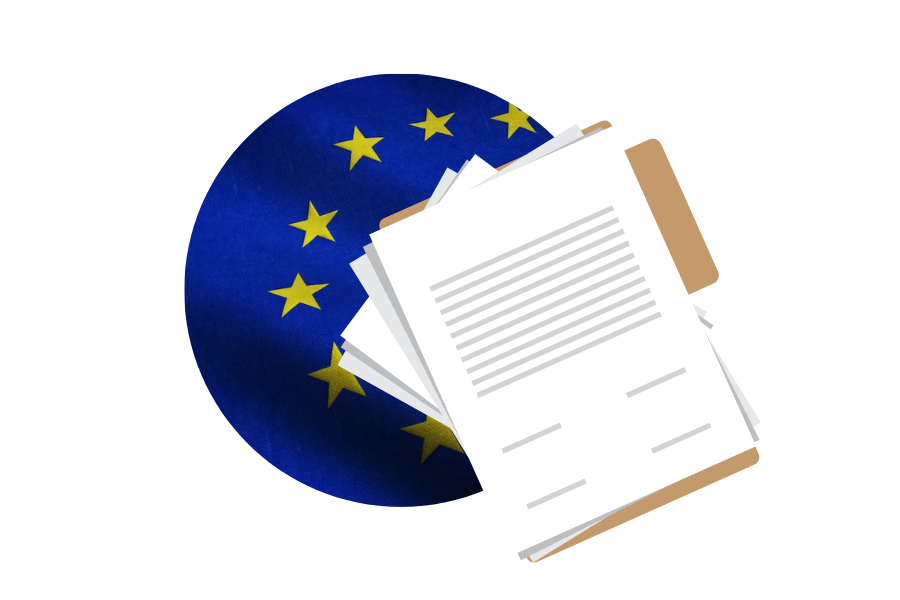Sustainability report translations
Sustainability reports present your organisation’s progress towards its performance, employee, social and environmental goals. We at Sandberg are here to help you inform your stakeholders about these achievements in their own language.

Sustainability report translations
Sustainability reports present your organisation’s progress towards its performance, employee, social and environmental goals. We at Sandberg are here to help you inform your stakeholders about these achievements in their own language.
96% of the world’s 250 largest companies
by revenue report on sustainability
Source: KPMG
The evolution of sustainability reporting
Sustainability reporting gained momentum in the early 1990s as environmental concerns increasingly gained relevance in many sectors of society. It has come a long way in the intervening 30+ years, and the landscape continues to change. Here, we look at some of the major events that have influenced sustainability reporting:
- The adoption of the United Nations Framework Convention on Climate Change (UNFCCC) in 1992.
- The “Triple bottom line” theory (1994) by John Elkington, which expands business success metrics to include contributions to environmental health, social well-being, and a fair economy.
- The adoption of the Kyoto Protocol in 1997.
- Global Reporting Initiative (GRI) in 1997.
- The International Organisation for Standardisation Guidance on Social Responsibility (ISO 26000) in 2010.
- The Non-Financial Reporting Directive (NFRD) introduced by the EU in 2014 (2014/95/EU).
- Sustainable Development Goals (SDGs) adopted by the UN in 2015. A call-to-action for people worldwide to address five critical areas of importance by 2030: people, planet, prosperity, peace, and partnership.
- Task Force on Climate-related Financial Disclosures (TCFD) in 2015.
- Recently, the EU Commission adopted a proposal to amend the NFRD and extend its scope. The EU replacing ‘non-financial’ with ‘sustainability reporting’ is a key message in conveying the importance of sustainability.
New EU rules for large companies
EU law requires large companies to disclose information on the way they approach and manage social and environmental challenges. Under the Non-Financial Reporting Directive (the current applicable regulation on sustainability reporting), large companies – those with more than 500 employees – must publish information related to environmental and social issues, treatment of employees, respect for human rights, anti-corruption, bribery, and diversity on company boards.
In June 2022, the European Parliament and Council reached a political agreement on a Corporate Sustainability Reporting Directive (CSRD). This new directive will modernise and strengthen the rules around the types of social and environmental information that companies must report.


Why Sandberg?


Native, specialist translators
Sustainability reports contain specialised financial, legal, and economic content. We assign native translators to every task and select professionals highly skilled in their field.


Best-in-class quality
We’re known for our exacting standards and ISO compliance, meeting or exceeding our clients’ quality expectations on every single job.


Streamlined communication
A dedicated project manager will be assigned to your report so that you know exactly who to contact.


Speed without compromise
We’re able to work to tight deadlines and still deliver the top-notch quality you expect.
Sustainability reporting for a global audience